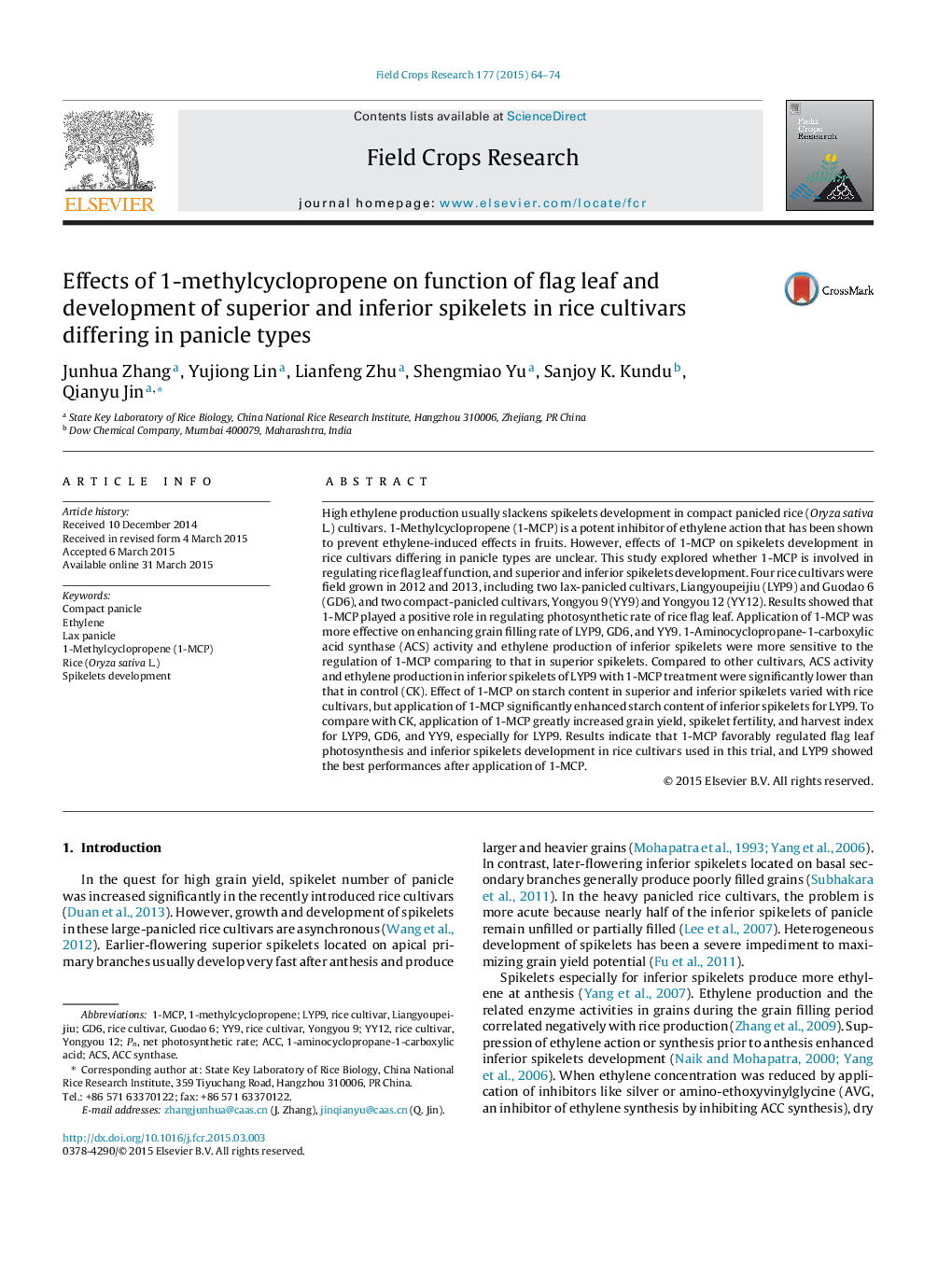| Article ID | Journal | Published Year | Pages | File Type |
|---|---|---|---|---|
| 6374918 | Field Crops Research | 2015 | 11 Pages |
Abstract
High ethylene production usually slackens spikelets development in compact panicled rice (Oryza sativa L.) cultivars. 1-Methylcyclopropene (1-MCP) is a potent inhibitor of ethylene action that has been shown to prevent ethylene-induced effects in fruits. However, effects of 1-MCP on spikelets development in rice cultivars differing in panicle types are unclear. This study explored whether 1-MCP is involved in regulating rice flag leaf function, and superior and inferior spikelets development. Four rice cultivars were field grown in 2012 and 2013, including two lax-panicled cultivars, Liangyoupeijiu (LYP9) and Guodao 6 (GD6), and two compact-panicled cultivars, Yongyou 9 (YY9) and Yongyou 12 (YY12). Results showed that 1-MCP played a positive role in regulating photosynthetic rate of rice flag leaf. Application of 1-MCP was more effective on enhancing grain filling rate of LYP9, GD6, and YY9. 1-Aminocyclopropane-1-carboxylic acid synthase (ACS) activity and ethylene production of inferior spikelets were more sensitive to the regulation of 1-MCP comparing to that in superior spikelets. Compared to other cultivars, ACS activity and ethylene production in inferior spikelets of LYP9 with 1-MCP treatment were significantly lower than that in control (CK). Effect of 1-MCP on starch content in superior and inferior spikelets varied with rice cultivars, but application of 1-MCP significantly enhanced starch content of inferior spikelets for LYP9. To compare with CK, application of 1-MCP greatly increased grain yield, spikelet fertility, and harvest index for LYP9, GD6, and YY9, especially for LYP9. Results indicate that 1-MCP favorably regulated flag leaf photosynthesis and inferior spikelets development in rice cultivars used in this trial, and LYP9 showed the best performances after application of 1-MCP.
Keywords
Related Topics
Life Sciences
Agricultural and Biological Sciences
Agronomy and Crop Science
Authors
Junhua Zhang, Yujiong Lin, Lianfeng Zhu, Shengmiao Yu, Sanjoy K. Kundu, Qianyu Jin,
